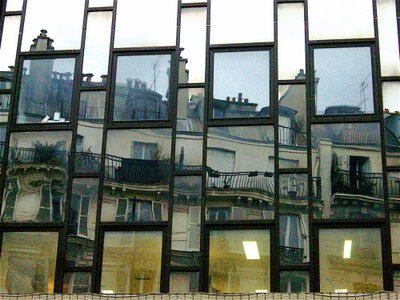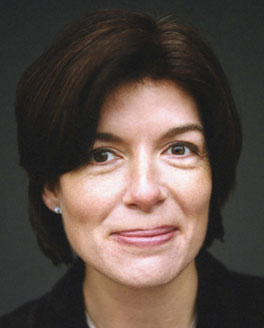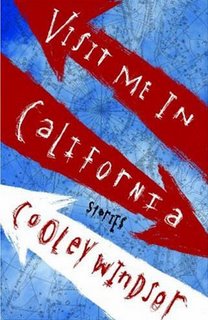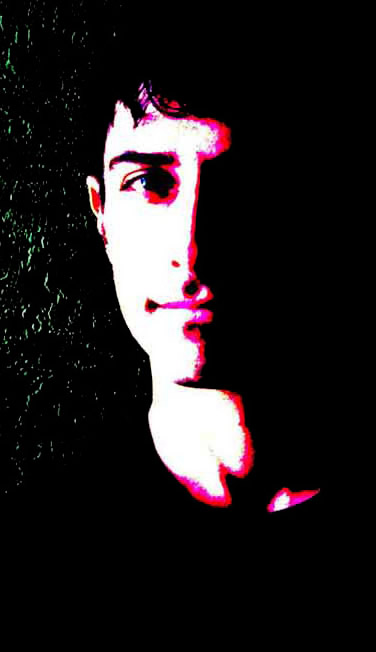Middlemarch
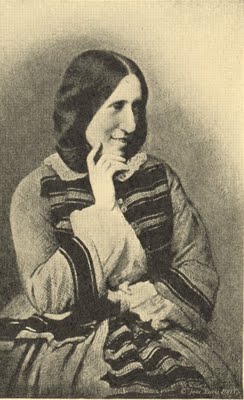
A recent Facebook status update "finished Middlemarch" generated so much response in the comments that I could barely get a word in edgewise, which made me grateful I still have recourse to a blog.
It was eight o'clock in the evening before the door opened and his wife entered. He dared not look up at her. He sat with his eyes bent down, and as she went towards him she thought he looked smaller - he seemed so withered and shrunken. A movement of new compassion and old tenderness went through her like a great wave, and putting one hand on his which rested on the arm of the chair, and the other on his shoulder, she said, solemnly but kindly -"Look up, Nicholas."He raised his eyes with a little start and looked at her half amazed for a moment: her pale face, her changed, mourning dress, the trembling about her mouth, all said, "I know"; and her hands and eyes rested gently on him. He burst out crying and they cried together, she sitting at his side. They could not yet speak to each other of the shame which she was bearing with him, or of the acts which had brought it down on them. His confession was silent, and her promise of faithfulness was silent. Open-minded as she was, she nevertheless shrank from the words which would have expressed their mutual consciousness as she would have shrunk from flakes of fire. She could not say, "How much is only slander and false suspicion?" and he did not say, "I am innocent."
Thumbing though the novel, it began to suspect that I wasn't always alone in my impatience with the life of the saint. Earlier in the book, the narrator insists on her own sympathy for the novel's first ogre, Dorothea's much older first husband, the dour and studious Reverend Edward Casaubon:
One morning, some weeks after her arrival at Lowick, Dorothea -- but why always Dorothea? Was her point of view the only possible one with regard to this marriage? protest against all our interest, all our effort at understanding being given to the young skins that look blooming in spite of trouble; for these too will get faded, and will know the older and more eating griefs which we are helping to neglect. In spite of the blinking eyes and white moles objectionable to Celia, and the want of muscular curve which was morally painful to Sir James, Mr. Casaubon had an intense consciousness within him, and was spiritually a-hungered like the rest of us. [...]
He had not had much foretaste of happiness in his previous life. To know intense joy without a strong bodily frame, one must have an enthusiastic soul. Mr. Casaubon had never had a strong bodily frame, and his soul was sensitive without being enthusiastic: it was too languid to thrill out of self-consciousness into passionate delight; it went on fluttering in the swampy ground where it was hatched, thinking of its wings and never flying. His experience was of that pitiable kind which shrinks from pity, and fears most of all that it should be known: it was that proud narrow sensitiveness which has not mass enough to spare for transformation into sympathy, and quivers thread-like in small currents of self-preoccupation or at best of an egoistic scrupulosity. [...] For my part I am very sorry for him. It is an uneasy lot at best, to be what we call highly taught and yet not to enjoy: to be present at this great spectacle of life and never to be liberated from a small hungry shivering self -- never to be fully possessed by the glory we behold, never to have our consciousness rapturously transformed into the vividness of a thought, the ardor of a passion, the energy of an action, but always to be scholarly and uninspired, ambitious and timid, scrupulous and dim-sighted. Becoming a dean or even a bishop would make little difference, I fear, to Mr. Casaubon's uneasiness. Doubtless some ancient Greek has observed that behind the big mask and the speaking-trumpet, there must always be our poor little eyes peeping as usual and our timorous lips more or less under anxious control.
So the novel's only characters I could deeply care about were its scoundrels in their undoings - Bulstrode primarily, and Casaubon, also exquisitely spoiled Rosamond in her protracted and fierce confrontation with the realities of her marriage, and most of the payoff comes in the final stretch. What makes the first few hundred pages so effervescent are the lighter barbs aimed at these denizens of the provinces:
Celia coloured, and looked very grave. "I think, dear, we are wanting in respect to mamma's memory, to put them by and take no notice of them. And," she added, after hesitating a little, with a rising sob of mortification, "necklaces are quite usual now; and Madame Poincon, who was stricter in some things even than you are, used to wear ornaments. And Christians generally - surely there are women in heaven now who wore jewels." Celia was conscious of some mental strength when she really applied herself to argument.
A man's mind - what there is of it - has always the advantage of being masculine - as the smallest birch-tree is of a higher kind than the most soaring palm - and even his ignorance is of a sounder quality. Sir James might not have originated this estimate; but a kind Providence furnishes the limpest personality with a little gum or starch in the form of tradition.
...there remained as the nethermost sediment in her mental shallows a persuasion that her brother Peter Featherstone could never leave his chief property away from his blood-relations: - else, why had the Almighty carried off his two wives both childless, after he had gained so much by manganese and things, turning up when nobody expected it? - and why was there a Lowick parish church, and the Waules and Powderells all sitting in the same pew for generations, and the Featherstone pew next to them, if, the Sunday after her brother Peter's death, everybody was to know that the property was gone out of the family? The human mind has at no period accepted a moral chaos; and so preposterous a result was not strictly conceivable. But we are frightened at much that is not strictly conceivable.
...very little achievement is required in order to pity another man's shortcomings.
Labels: fiction
